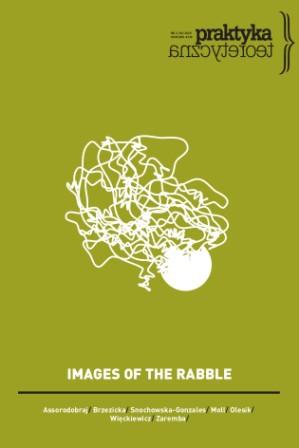Gleaning on the Shores of Politics. Commoning as the New Philosophy of Praxis
Gleaning on the Shores of Politics. Commoning as the New Philosophy of Praxis
Author(s): Łukasz MollSubject(s): 19th Century Philosophy, Marxism, Philosophy of Law, Labor relations, Social Theory, Crowd Psychology: Mass phenomena and political interactions
Published by: Uniwersytet Adama Mickiewicza
Keywords: commoning; gleaning; praxis; the commons; the rabble;
Summary/Abstract: The article joins the recent discussion, led by theorists of the commons, on the meaning of “commoning”. It proposes to recognize as the main feature of the practice of commoning the capacity to reproduce the autonomy of plebeian life- -worlds that could possibly lead to a post-capitalist future. The identification of commoning as the activity of marginal subjectivities is presented here with the example of gleaning. This traditional activity of the poor is re-examined in the article as an ambiguous practice that escapes the binaries of activity and passivity, positivity and negativity, production and reproduction. Gleaning, with its reproductive capacities, serves as a model for commoning, understood as the new philosophy of praxis, which is much needed in the times of ecological catastrophe and the broken connection between labour and care. The history of struggles around gleaning and the commons, and the figures of the poor female harvester (glaneuse) and urban ragpicker (chiffonier) are recalled in the article in order to recognize the much devaluated potential of commoning to interrupt the history of blind productivism and, together with reclaiming the commons, to also reclaim our future.
Journal: Praktyka teoretyczna
- Issue Year: 2020
- Issue No: 36
- Page Range: 35-66
- Page Count: 32
- Language: English

